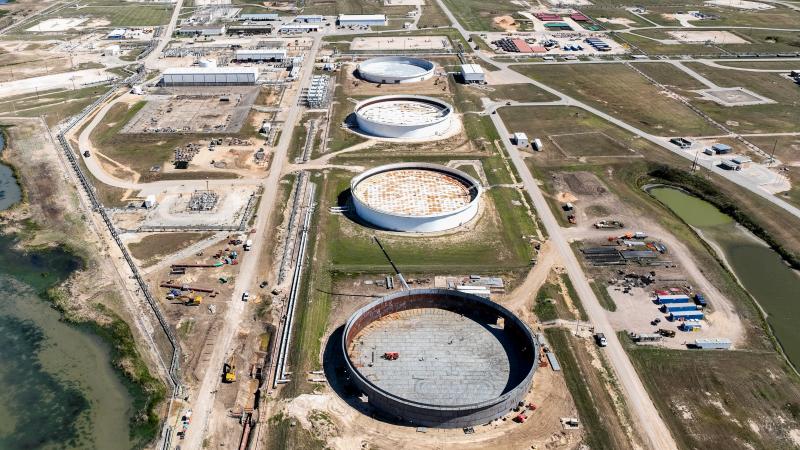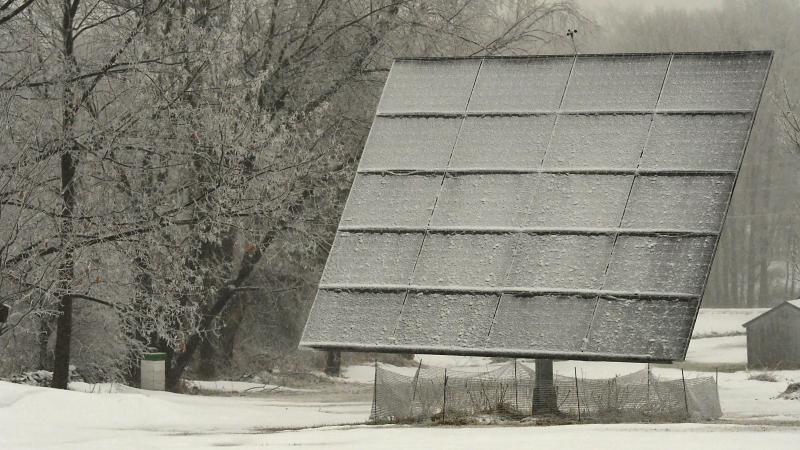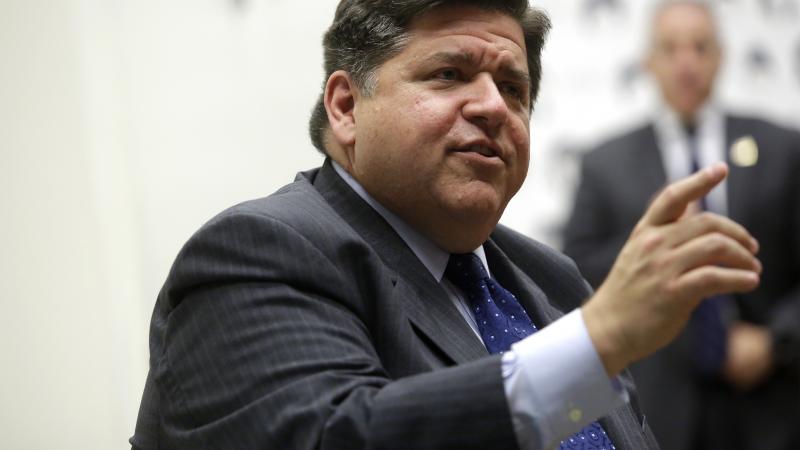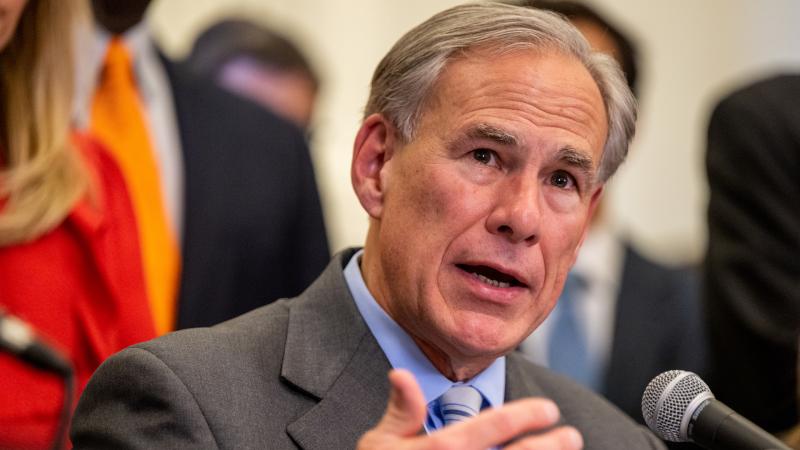Democrats grill Energy Secretary on his plans to make DOE run efficiently and use taxdollars wisely
Wright testified that the Loans Program Office at the DOE had issued about $40 billion in loans for energy projects over the last 15 years. But in the last 76 days of the Biden administration, that number jumped to $100 billion. Wright said that the rushed loan agreements lacked clauses traditionally required by the DOE.
Energy Secretary Chris Wright testified at a House Appropriations subcommittee budget hearing Wednesday. The hearing was one of six budget hearings this week in which department heads discussed President Donald Trump’s fiscal year 2026 budget proposal.
Typically, that process sees department heads justify their use of funds, but Wright spent quite a bit of his testimony responding to questions from Democrats about his plans to cut spending and use taxpayer money efficiently.
“The Department of Energy will advance these critical missions while cutting red tape, increasing efficiency, unleashing innovation and ensuring we are better stewards of taxpayer dollars,” Wright said.
Wright: Loan agreements "extremely concerning"
Rep. Marcy Kaptur, D-Ohio, questioned Wright about the Department of Energy’s purported failure to respond to multiple letters seeking information about alleged freezing of funds and firing of employees in the wake of implementing policies that propelled Trump to the presidency for a second time.
Wright said that many letters he’s received were based on misinformation spread in the media. The DOE, he said, hasn’t frozen any funds, and if he answered all the letters he’d received from multiple sources, he’d have little time for much else.
He said he’s been working hard to make the DOE run efficiently and use taxpayer dollars wisely. As an example of the task before him, he said that the Loans Program Office at the DOE had issued about $40 billion in loans for energy projects over the last 15 years. But in the last 76 days of the Biden administration, it rushed to issue another $100 billion.
“It’s extremely concerning…There are clauses in loan agreements that are in all previous loan agreements that somehow weren’t in the loan agreements rushed out at the end,” Wright said.
President Donald Trump on Friday released his proposed budget for fiscal year 2026, which aims to eliminate funding for what he calls the “Green New Scam.” This includes cuts to “unreliable renewable energy,” carbon capture projects, electric vehicle battery manufacturing, and EV chargers.
The proposal also calls for an end to funding the Environmental Protection Agency’s environmental justice programs, "woke research grants,” and funding for non-governmental organizations to “advance the radical climate agenda.” The proposed budget also calls for $2.5 billion in cuts to the DOE’s Energy Efficiency and Renewable Energy program. Wright said that he was carrying out the mission of the DOE in line with Trump’s agenda of “unleashing American energy.”
“When America leads in energy, we lead in prosperity, security and human flourishing. Achieving this vision means fully leveraging the resources that have powered our country for generations. The United States is blessed with the abundance of coal, oil and natural gas, and the Trump administration is committed to using them to provide affordable, reliable and secure energy for the American people,” Wright said.
Gigantic government deficit "a threat"
Kaptur later questioned Wright again on the reduction of the number of federal employees at DOE, asking him the percentage of staff that were let go from the department. Wright said it was in the single-digit percentage — less than 1,000 people in a department of 16,000 — and almost all were through early retirement and other options.
“We are working on a restructuring of the department, which will be a more meaningful change in that but it is in progress, and it's almost entirely voluntary,” Wright said.
Kaptur said that the staff reductions were following an “unusual process,” and she asked Wright if these were in response to directives from the Department of Government Efficiency (DOGE) team.
“This is the whole administration saying we owe it to the American taxpayers to be more responsible stewards of their money and to move our gigantic government deficit that's a threat to my kids and particularly my new grandchild. We've got to just be smarter about doing that,” Wright countered.
Kaptur asked Wright specifically about staff reductions at the National Nuclear Security Administration, which maintains the security of the U.S. nuclear stockpile. According to multiple reports, the DOE fired 300 staff within the office, only to later rehire them when it was determined that the employees’ roles were essential.
In March, a group of six senators led by Sen. Edward Markey, D-Mass., sent a letter to Wright questioning him about the incident, stating that his previous response to a letter on the matter didn’t address the senators’ concerns. It also claimed his answers were contradictory.
At the budget hearing Wednesday, Wright said that the premise of the letters he received made accusations that were “simply false.” He said he’d be happy to discuss with Kaptur any concerns she has on the phone.
“I wanted a more thorough briefing than that, sir. I’m sort of disappointed in your answer this morning. I think it speaks for itself,” Kaptur said.
Nuclear, minerals and artificial intelligence
Wright expressed support for the development of geothermal, nuclear, nuclear fuel and long-term storage of nuclear waste. He also said that increasing the electricity supply, which includes developing natural gas and coal resources, was vital to America’s competitiveness in the development of artificial intelligence. He compared it to the Manhattan Project, which was launched during World War II in order to develop the atomic bomb.
“If we are lagging, if we're behind China in AI, our sovereignty, our national defense, is at risk. I think it is not an option for us to get second in AI,” Wright said.
Rep. Frank Mrvan, D-Ind., said that a Ford plant in South Chicago was halting production due to a lack of critical minerals needed for braking systems. Mrvan asked Wright about his plans to increase domestic production of critical minerals. Wright said China had worked for decades to control the global supply of the critical mineral supply chain, and changing America’s dependence on China for these minerals was a top priority.
“How do we develop the capacity of mines, of refining, of production in our country? Of the 50 critical minerals, we're 100% dependent on imports for 12 of them,” he said. Part of the difficulty, he said, is that it’s very difficult to open a mine in the U.S., and permitting reform was key to achieving that and many other goals.
“I think it's a huge problem in our country. How can we advance if we can't build anything?” Wright said.
When America was bold
Rep. Newhouse asked Wright about the Biden administration’s plans to remove hydroelectric dams on the Snake River. Wright said he is “passionately in support” of keeping the dams in place. He said they are flexible sources of power in that you can release water to increase the supply of electricity when needed, and then store up water behind the dam when demand is satisfied. In the race to develop AI, dams would be a valuable source of energy, he said.
“When America was bold, we built a number of great dams. They've been critical to the economic prosperity of our country, very early suppliers of firm, reliable power,” Wright said.
Wright said he was unable to discuss specifics about the coming budget request, so he provided no details on dollar amounts or how much, if any, his fiscal year 2026 budget request would compare to that of his predecessor, Jennifer Granholm. From his talk of implementing efficiencies and scrutinizing department spending, it’s likely that the DOE budget request for the coming fiscal year will be less than that of Granholm’s.














